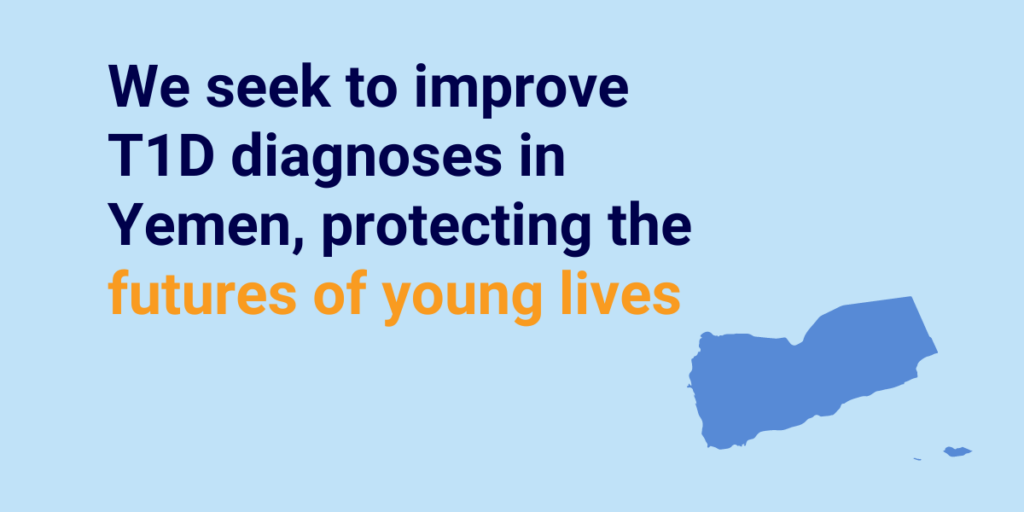Published information on the T1D population in Yemen has been limited and inadequately detailed—until now.
To better understand the high incidence of T1D in Yemen, Life for a Child partnered with Sana’a University, the International Organization for Migration, and the Sana’a Diabetes Centre to conduct a study. This research focuses on the clinical characteristics, biomarkers, T1D subtypes, and diabetic ketoacidosis (DKA) risk factors at diagnosis among children and adolescents.
The findings are concerning. Children in Yemen experience significant delays in T1D diagnosis and treatment, leading to a high incidence of DKA at diagnosis. DKA can rapidly become fatal, and even when not fatal, delayed diagnosis for T1D results in severe health complications, affects growth and development, compromises quality of life, and worsens long-term health outcomes. T1D is challenging to manage even under the best circumstances, and the importance of an early start cannot be overstated. With 79% of the study population under 19 years old presenting with DKA at diagnosis, immediate and urgent intervention is essential to protect the lives and futures of young people living with T1D in Yemen.
In a timely alignment with our research, Life for a Child has entered into a Collaboration Agreement with the Yemeni Diabetes Association. This partnership aims to implement targeted interventions to reduce adverse outcomes from misdiagnosis and to improve access to at least an ‘intermediate care’ level. Our specific recommendations include:
- Enhancing Early Diagnosis: Through comprehensive training programs for healthcare professionals.
- Increasing Community Awareness: Focusing on the recognition of T1D symptoms.
- Ensuring Timely Access: To essential diabetes care services, including vital insulin and supplies.
We are positioned to advocate effectively for these recommendations. Through our new collaboration with the Yemeni Diabetes Center, we strive to empower healthcare professionals through education and capacity building, while directly supporting young people with diabetes by providing crucial insulin and supplies. These interventions are critical to reducing life years lost to T1D and improving health outcomes for children in Yemen. Through these efforts, we aspire to ensure that every child with T1D in Yemen receives timely and effective care, thereby significantly improving their quality of life and health outcomes. This collaboration underscores our commitment to translating research findings into impactful, on-the-ground initiatives.
You can view the study here.
Emma Klatman Global Policy and Advocacy Manager
